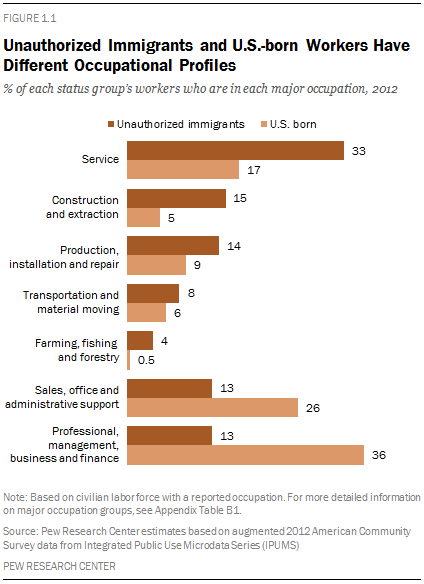The hidden costs of expulsions on the American economy
By: Ayana Dhruv
The human cost and ethical issues of mass deportations are undeniable, but a real crisis lies within the economic fallout. When millions of workers are taken from their homes and sent away, industries dependent on the migrant workforce face overwhelming labor shortages and skyrocketing costs. Economic damage incurred by mass deportations could be far worse than the government is willing to admit. These evictions will not only harm individuals but also ruin industries key to sustaining American livelihoods by causing labor issues, higher costs, and increased unemployment as the government realizes the importance of these undocumented immigrants to the U.S. economy.
While President Trump and his administration claim that illegal immigrants are “poisoning the blood of our country,” these workers make up the backbone of the American economy. In the United States, several industries depend significantly on undocumented workers, including construction and agriculture. Proposed deportation initiatives under the Trump administration would remove more than 30% and 28% of workers from those respective sectors. In such labor-intensive industries, losing that many workers would be incredibly detrimental to the overall operations of those industries and cause internal labor shortages.
The U.S. is already feeling the strain in its labor force, and the removal of these undocumented immigrants will only exacerbate existing industry challenges. Not only will there be a dire lack of workers in core American industries, but it will also affect American working class citizens. While many think the illegal immigrants are taking jobs from U.S. citizens, in reality, they work jobs that most Americans do not want to work in. For example, 5.8% of cooks are undocumented immigrants while only 3.3% are naturalized citizens. Deportations of migrant workers would create a ripple effect throughout the whole economy and leave basic industries in need of a new labor force. The loss of workers will create a domino effect up the employment chain, reducing the need for as many store managers, kitchen managers, and even lower-level positions like dishwashers. This will lead to fewer service jobs offered, more costs for businesses, and most importantly higher levels of overall unemployment across the U.S. The population of illegal immigrants in recent years has increased significantly because many attempt to flee the escalating dangerous conditions in their homelands or take advantage of the promising economic opportunities the U.S. has to offer. These migrants are coming to the United States during working years and are actively contributing to industries in many ways that U.S. citizens neglect.
Deporting these individuals will not only shift the labor force into uncertainty, it will also have a major impact on overall costs and inflation prospects in the subsequent years. During COVID-19, economists attributed high inflation to the significant loss of migrant labor that made goods less readily available. This cycle is bound to repeat itself, as deporting 7.5 million workers could produce three years of higher inflation rates, spiking at 3.1%. Essentially, the loss of these workers would cause inflation to skyrocket during an already uncertain economic period for the US.
Mass deportations would have severe economic consequences, causing labor issues, less employment opportunities, and inflation. Undocumented workers are essential to many industries and their removal would significantly disrupt the overall economy. The cost of deportation goes far past the ethical issues because it poses clear threats to the nation’s economic stability.



